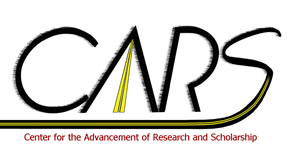Global Stakes: A View of Pre-school through Secondary School Education on Sustainable Development in the Developing World: Case Study Involving 3 Schools in India
Location
Hart 114
Start Time
13-5-2016 2:20 PM
End Time
13-5-2016 2:50 PM
Description
The premise here is that the 'global village' (McLuhan) has arrived at a point where early childhood through secondary educational models need to educate children with greater capacity as decision makers and leaders to move vigorously toward sustainable development in the next generation. In addition, general populations will need to be equipped with the tools to adapt more readily to rapidly changing local, regional, national and global environments. Developing countries are, of necessity, at the cutting edge of these phenomena as they struggle to achieve meaningful growth and prosperity while designing and building their social, economic and political systems.
Why India? India is a rapidly developing country with currently the highest GDP in the World (as of 1/10/16; Hyderabad Times), surpassing China and many more developed countries. This presentation will be a walk-through of slides showing various educational settings and action-based learning programs at 3 schools across India from a study visit completed this past Semester Break. The speaker will describe the activities engaged in and the learning objectives defined by the schools' teachers and leaders, along with some observed outcomes.
Global Stakes: A View of Pre-school through Secondary School Education on Sustainable Development in the Developing World: Case Study Involving 3 Schools in India
Hart 114
The premise here is that the 'global village' (McLuhan) has arrived at a point where early childhood through secondary educational models need to educate children with greater capacity as decision makers and leaders to move vigorously toward sustainable development in the next generation. In addition, general populations will need to be equipped with the tools to adapt more readily to rapidly changing local, regional, national and global environments. Developing countries are, of necessity, at the cutting edge of these phenomena as they struggle to achieve meaningful growth and prosperity while designing and building their social, economic and political systems.
Why India? India is a rapidly developing country with currently the highest GDP in the World (as of 1/10/16; Hyderabad Times), surpassing China and many more developed countries. This presentation will be a walk-through of slides showing various educational settings and action-based learning programs at 3 schools across India from a study visit completed this past Semester Break. The speaker will describe the activities engaged in and the learning objectives defined by the schools' teachers and leaders, along with some observed outcomes.

Comments
Moderator: Kimberly Fox